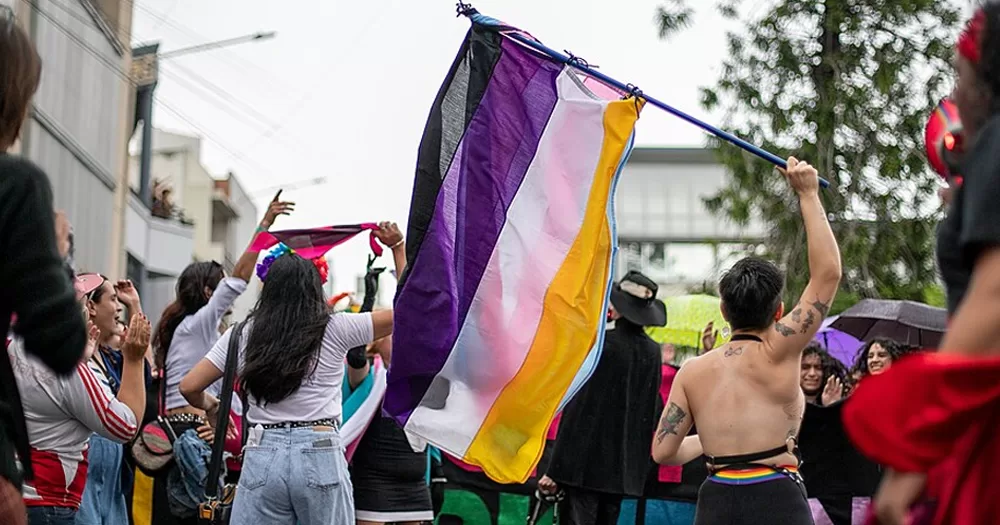According to new statistics released by the Department of Social Protection, the number of applications for Gender Recognition Certificates (GRC) fell slightly in 2024 compared to the previous year. In light of these new numbers, trans groups have highlighted the need to introduce non-binary gender recognition in Ireland and address the gaps in current legislation.
2025 marks 10 years since the Gender Recognition Act 2015 was made into law. The legislation allows trans people in Ireland to legally self-declare their gender and update their official documents accordingly.
Ireland is one of only 11 European countries that offer gender recognition through self-determination, meaning there is no requirement to undergo psychological or medical evaluation to obtain a Gender Recognition Cert (GRC).
As highlighted by the ninth annual report published on the Department of Social Protection’s website, the total number of applications for a GRC in 2024 was 340.
336 of these were from people over the age of 18, which marks a slight fall from 2023, when 350 people in this age bracket applied for the certificate. In total, 334 people aged 18 and over who applied in 2024 were granted certificates.
People aged 16 and 17 can also apply for a GRC. Of this age cohort, four people applied and three were granted certs.
Commenting on the slight fall in numbers, trans groups highlighted the need to address gaps in current legislation and introduce non-binary gender recognition in Ireland. Activists from Transgress the NGS said: “While it’s great that the people who have already accessed it were able to do so, it’s not surprising that the numbers are dropping because the current system for GRC fails non-binary people by only having M & F.
“For trans youth, although they can get GRCs, the process requires parental consent, a medical practitioner’s go ahead, a psychiatrist’s go ahead AND a letter sent to courts. GRC applications are an important part of legal recognition and ease of access through daily life. They are one piece of a broader picture of self-determination where the key missing piece is healthcare based on informed consent.
“Numbers may have gone down for GRCs for one year and we can’t say why. Meanwhile the waitlist for gender-affirming healthcare continues to grow with waits now well over 10 years.”
A spokesperson from TENI added: “The GRC remains one of the most easily accessible pieces of gender recognition legislation in the world for binary trans people.
“The trans population in Ireland is small, and it makes sense that as many people have already been able to access a GRC, numbers for new registrations will fall. However, what is missing from these statistics is the number of non-binary people and young people who are still unable to have their gender legally recognised.”
Did you know we have a team of wonderful runners taking part in this year’s Dublin Marathon and raising funds for GCN? You can support our athletes at this link.
© 2025 GCN (Gay Community News). All rights reserved.
Support GCN
GCN is a free, vital resource for Ireland’s LGBTQ+ community since 1988.
GCN is a trading name of National LGBT Federation CLG, a registered charity - Charity Number: 20034580.
GCN relies on the generous support of the community and allies to sustain the crucial work that we do. Producing GCN is costly, and, in an industry which has been hugely impacted by rising costs, we need your support to help sustain and grow this vital resource.
Supporting GCN for as little as €1.99 per month will help us continue our work as Ireland’s free, independent LGBTQ+ media.
